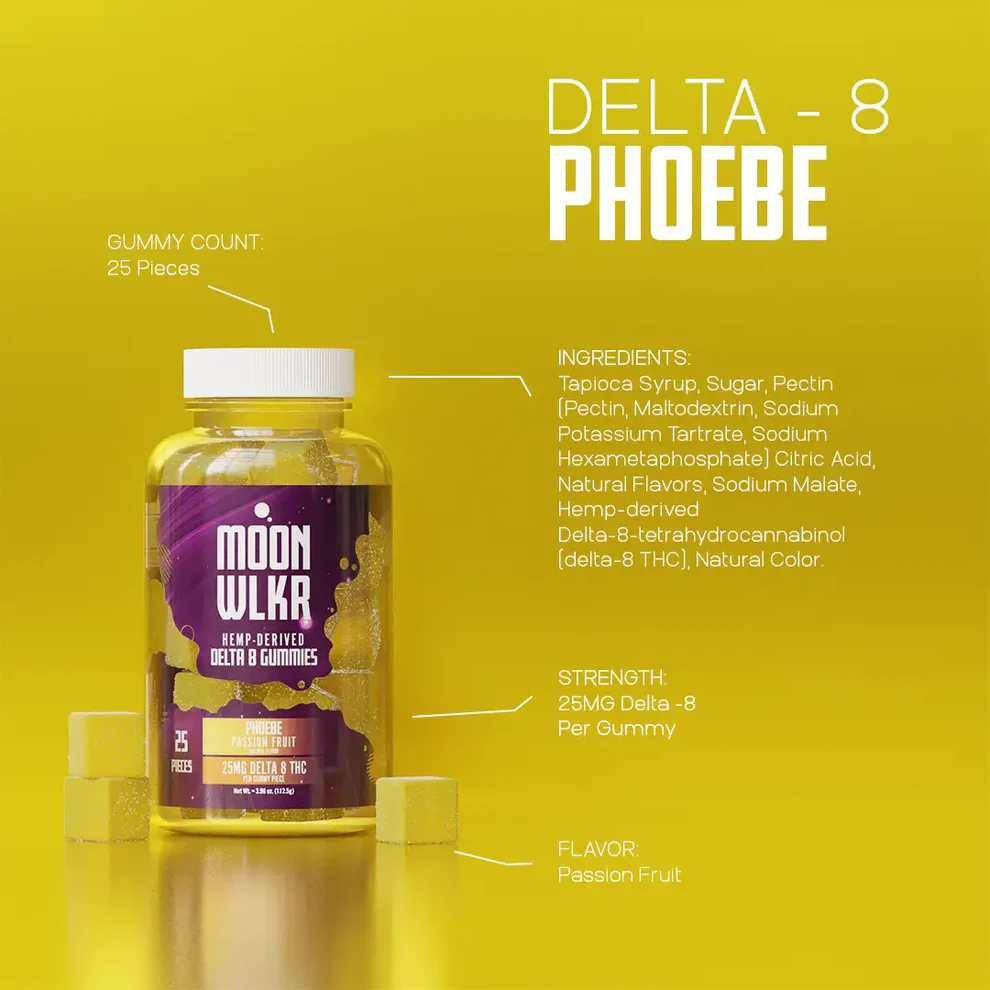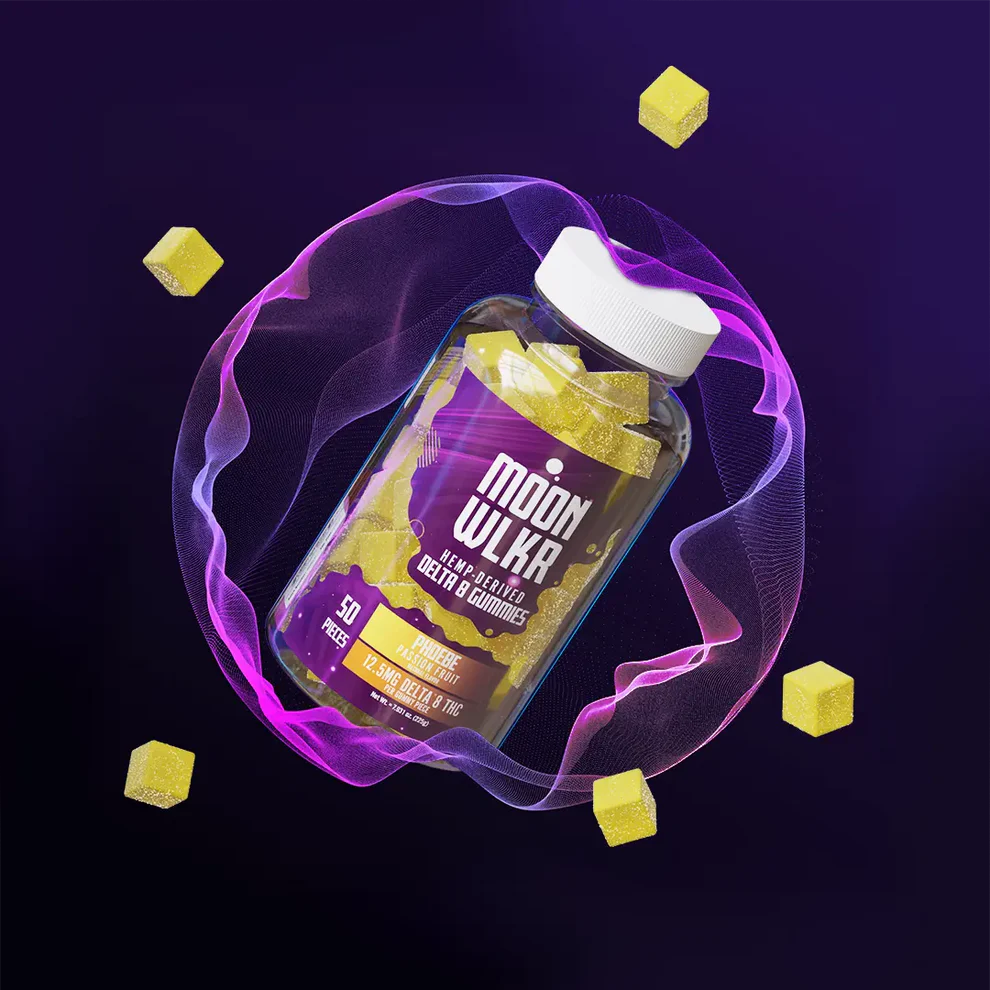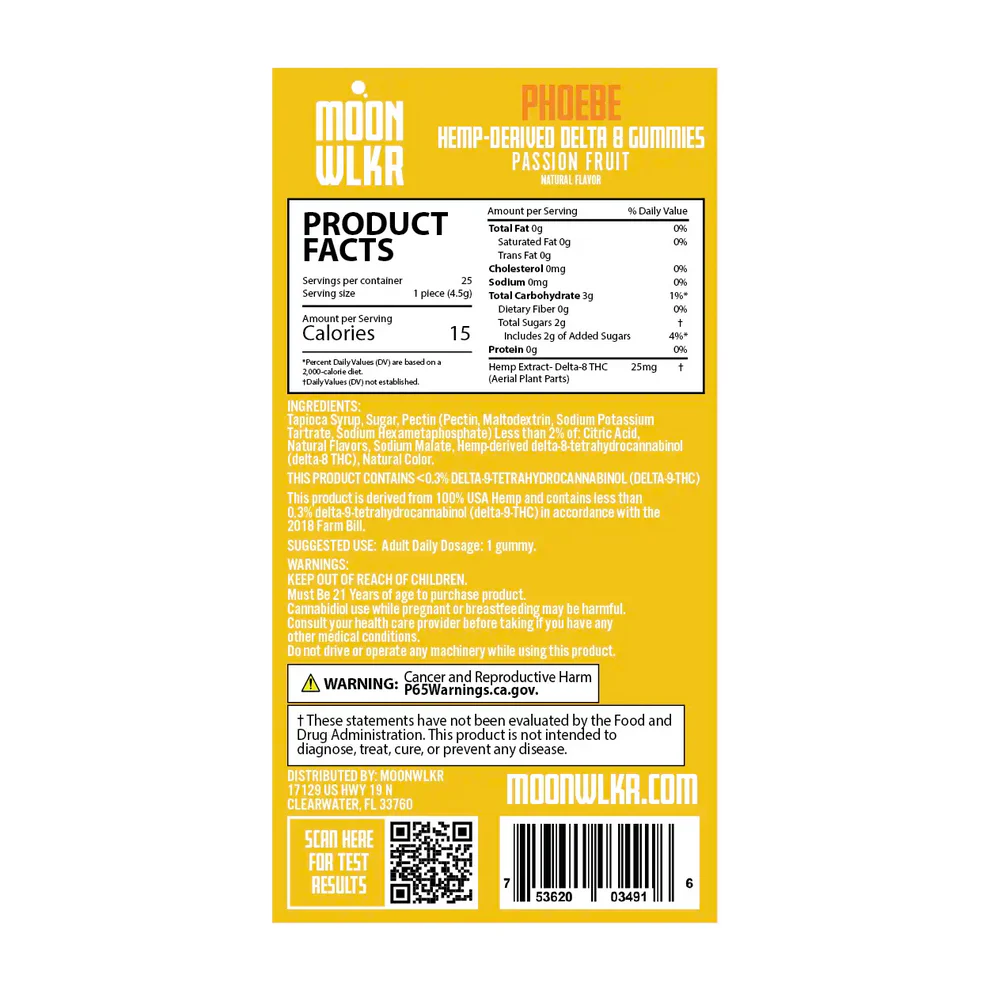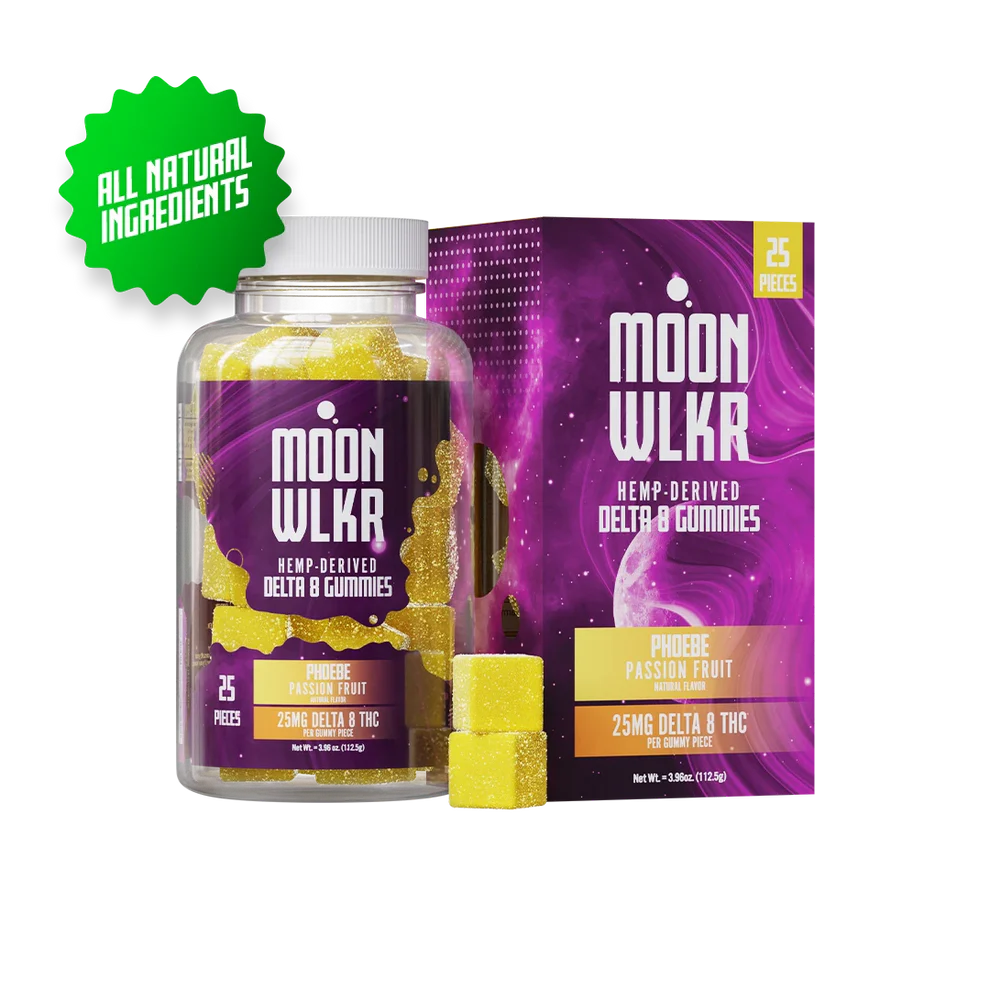If you’ve ever struggled with unwinding at the end of the day, you might have come across Delta 8 gummies vs melatonin as two popular options for relaxation. While both have gained attention for their effects, they work in very different ways and cater to different individual preferences.
Delta 8 THC is a hemp-derived compound that interacts with the body’s endocannabinoid system, while melatonin is a naturally occurring hormone that helps regulate the sleep-wake cycle. Neither is a one-size-fits-all solution, but depending on what you’re looking for, you may find one more suited to your needs than the other.
Let’s take a closer look at how they compare and what makes them unique.
Oh, quick detour—if you’re all about top-tier Delta 8 gummies, Moonwlkr is where it’s at. They’ve got a rep for delivering an unbeatable experience, and here’s a bonus—use code SLYNGXMOON for 20% off your order.
Now, let’s keep rolling.
Delta 8 Gummies vs Melatonin

Delta 8 gummies and melatonin serve different roles in the realm of relaxation, with distinct mechanisms of interaction within the body. While both are commonly used by individuals seeking ways to unwind, their effects, duration, and underlying biological functions are quite different. Delta 8 gummies are derived from hemp-based cannabinoids and interact with the endocannabinoid system, while melatonin is a naturally occurring hormone that regulates the sleep-wake cycle. Understanding how each of these substances functions can help individuals make an informed decision about which one may align with their personal preferences.
Both options are available in a variety of forms, but gummies are among the most popular due to their convenience and ease of use.
Despite their differences, some people choose to use them in complementary ways, while others may opt for one over the other based on their intended purpose. Exploring the characteristics of each provides insight into how they fit into different relaxation routines.
Delta 8 Gummies: A Hemp-Derived Compound
Delta 8 THC is a cannabinoid extracted from hemp plants, often formulated into gummies or other edible products. It is known for interacting with the body’s endocannabinoid system (ECS), specifically binding to CB1 and CB2 receptors, which influence mood, relaxation, and perception.
Because it is a psychoactive compound, Delta 8 produces noticeable effects that vary in intensity depending on factors such as dosage, metabolism, and individual tolerance levels.
While some individuals describe their experience with Delta 8 as a mild sense of euphoria, relaxation, or sensory enhancement, the actual effects are subjective and depend on how each person’s body processes cannabinoids. Unlike melatonin, which functions as a hormonal signal for sleep, Delta 8’s effects are more experiential in nature, making it a choice that some people prefer for unwinding rather than specifically aiding sleep.
Since Delta 8 must go through the digestive and metabolic process when consumed in gummy form, its effects typically take longer to kick in compared to methods such as vaping. However, once absorbed, the effects tend to last longer, which is why some individuals opt for Delta 8 in the evening or in situations where they want to maintain a sense of relaxation over an extended period.
While some people incorporate Delta 8 gummies into their nighttime routines, others prefer using them for general relaxation or leisure activities.
Melatonin: The Sleep Hormone
Melatonin is a naturally occurring hormone that the body produces in response to decreasing light exposure. It plays a significant role in regulating circadian rhythms, which are the biological patterns that dictate the sleep-wake cycle. When melatonin levels rise, it signals the brain that it is time to begin preparing for rest, which is why it is commonly found in sleep-related supplements.
Unlike Delta 8, melatonin does not induce a psychoactive effect. It does not interact with cannabinoid receptors, nor does it alter perception. Instead, it serves as a biological cue that aligns the body’s internal clock with external factors such as daylight and nighttime schedules. Many individuals choose melatonin supplements in response to inconsistent sleep patterns, jet lag, or difficulty maintaining a natural sleep cycle due to environmental factors such as screen exposure or irregular work schedules.
Since melatonin functions as a short-term regulatory aid, its effects tend to occur relatively quickly after ingestion. People who use melatonin supplements generally report that it helps them transition into a sleep-ready state, though responses can vary depending on timing, dosage, and individual sleep chemistry.
Unlike Delta 8, melatonin does not produce prolonged relaxation effects throughout the evening and is primarily used for establishing sleep readiness rather than providing an extended sense of calm.
Overall, both Delta 8 gummies and melatonin are associated with relaxation in different ways, with Delta 8 being more experiential and perception-based, while melatonin functions as a biological sleep signal. Understanding these distinctions can help individuals choose the option that best aligns with their specific preferences and routines.
How They Work in the Body

The way Delta 8 gummies and melatonin function in the body is fundamentally different, as they target distinct biological systems and serve unique purposes.
While Delta 8 interacts with the endocannabinoid system (ECS) to influence relaxation and sensory perception, melatonin operates within the circadian rhythm, signaling the body when to prepare for rest. These mechanisms determine not only how each compound is processed but also how individuals experience their effects.
Understanding the biological pathways involved helps explain why Delta 8’s effects develop gradually and may last longer, while melatonin works more directly in aligning sleep-wake cycles.
Both substances are influenced by factors such as metabolism, individual tolerance, and dosage, making their effects subjective to each person.
Delta 8 and the Endocannabinoid System
Delta 8 THC interacts with the body’s cannabinoid receptors, CB1 and CB2, which are part of the endocannabinoid system (ECS): a network that plays a role in mood regulation, relaxation, and perception. When consumed in gummy form, Delta 8 must first pass through the digestive system, where it is metabolized by the liver before entering the bloodstream. This metabolic process is why Delta 8 edibles take longer to kick in compared to inhaled forms, typically requiring 30 minutes to two hours before noticeable effects begin to develop.
The onset, intensity, and duration of Delta 8’s effects vary depending on multiple factors, including an individual’s body weight, metabolism, tolerance, and recent food intake. Some people describe a gradual sense of calm or mild euphoria, while others experience a more pronounced shift in relaxation and sensory awareness. The effects of Delta 8 gummies tend to last longer than inhaled forms, often remaining noticeable for several hours before gradually tapering off.
Since Delta 8’s interaction with the ECS is more complex, it does not produce a direct, predictable response in the same way melatonin does. Instead, the experience is influenced by personal biochemistry and dosage, making it an option that individuals may experiment with to find their preferred level of relaxation. Because of this variability in response, some people may use Delta 8 gummies for general relaxation, while others may incorporate them into evening routines.
Melatonin and Sleep Regulation
Melatonin functions independently of the endocannabinoid system, working as a hormonal signal that communicates with the body’s internal clock. Produced naturally by the pineal gland in response to decreasing light exposure, melatonin helps regulate circadian rhythms, which influence the timing of sleep and wakefulness. Unlike Delta 8, melatonin does not alter perception or mood but instead reinforces the body’s natural sleep-wake cycle.
When taken as a supplement, melatonin is absorbed relatively quickly, typically reaching its peak within 30 to 60 minutes. Because melatonin is not stored in the body for extended periods, its effects are often short-lived, meaning it is most effective when used consistently at the same time each evening.
This is why some individuals use melatonin to help adjust to new sleep schedules, especially when dealing with jet lag or irregular bedtime routines.
The effectiveness of melatonin varies based on timing, dosage, and individual sleep patterns. Some people find that low doses help them ease into rest, while others may require a more structured routine for noticeable effects. Unlike Delta 8, melatonin does not have a gradual build-up or lingering effect, as its primary role is to signal rather than induce relaxation.
While both Delta 8 and melatonin are associated with evening use, they function in fundamentally different ways. Delta 8 is processed through the ECS and digestive system, resulting in a slower onset and longer duration, while melatonin serves as a biological sleep signal that fades naturally after fulfilling its role in circadian regulation.
These distinctions help individuals determine which option aligns better with their lifestyle, personal rhythms, and relaxation preferences.
Comparing Effects and Uses

Delta 8 and melatonin offer distinct experiences, with Delta 8 interacting with the body’s endocannabinoid system (ECS) and melatonin working as a natural signal for sleep readiness. While both can be incorporated into evening routines, their primary uses and effects differ significantly.
Delta 8 is often chosen by those seeking a unique sensory experience, while melatonin is typically used for reinforcing the body’s sleep cycle. Because of these differences, individuals may respond differently to each compound based on their personal preferences, tolerance levels, and intended use.
Delta 8: Relaxation and a Unique Experience
Delta 8 is known for its psychoactive properties, meaning it interacts with cannabinoid receptors in a way that can alter perception and enhance relaxation. Some individuals describe the experience as a gentle calming effect, while others report feeling mild euphoria or increased sensory awareness. The overall sensation varies depending on dosage, body chemistry, and metabolism, making Delta 8 a highly individualized experience.
Unlike melatonin, which acts as a sleep-cycle regulator, Delta 8 is more commonly associated with leisurely unwinding rather than directly promoting sleep. Some users find that its effects help them transition into a relaxed state, while others may use it for creative engagement, social activities, or general stress relief. Because Delta 8 gradually builds in intensity when consumed as a gummy, its effects can last for several hours, with some individuals experiencing a longer duration of relaxation than others.
Since the experience of Delta 8 is highly subjective, people experimenting with it for the first time often start with lower doses to gauge their response. The effects may linger beyond initial use, making it important for users to determine the appropriate timing for consumption based on their schedule and personal comfort level.
Melatonin: Supporting the Sleep Cycle
Melatonin functions in a fundamentally different way from Delta 8, as it does not produce psychoactive effects or alter perception. Instead, melatonin works as a regulatory signal, helping the body recognize when it is time to sleep. The natural production of melatonin increases in response to darkness, but environmental factors such as artificial lighting, travel, and irregular sleep schedules can disrupt its release.
Unlike Delta 8, melatonin does not create a prolonged relaxation effect and is not typically associated with enhanced mood or sensory perception. Instead, it serves as a short-term sleep aid, assisting those who are adjusting to time zone changes, shift work, or disruptions in their natural sleep rhythm.
Because melatonin works best when taken consistently, some individuals use it for reinforcing long-term sleep patterns, while others rely on it only when needed. The amount taken can influence how quickly a person transitions into a sleep-ready state, though results vary based on timing, dosage, and individual sleep cycles.
While both Delta 8 and melatonin can be used in evening relaxation routines, their mechanisms, duration, and overall effects differ significantly. Understanding these differences allows individuals to choose the option that best aligns with their personal relaxation and sleep goals.
Choosing Based on Personal Preferences

Deciding between Delta 8 gummies and melatonin depends on individual preferences, lifestyle, and intended use. Since both compounds function differently within the body, the best option is determined by what a person is looking for—whether it be a psychoactive experience with relaxation effects or a non-psychoactive way to support sleep regulation.
For some, Delta 8’s interaction with the endocannabinoid system makes it appealing as a way to unwind and enhance sensory perception, while others prefer melatonin’s natural role in signaling the body to prepare for rest. Since neither is a one-size-fits-all solution, understanding when each option might be preferred can help individuals make an informed choice.
When Individuals May Consider Delta 8
Some individuals may prefer Delta 8 gummies if they are looking for an experience that extends beyond simple sleep support. Delta 8 interacts with cannabinoid receptors in the endocannabinoid system (ECS), which is involved in regulating processes such as mood, relaxation, and sensory perception. This interaction makes Delta 8 a different kind of experience compared to melatonin, as it is not strictly tied to sleep regulation.
Since Delta 8 is psychoactive, it produces noticeable effects that vary in intensity and duration depending on dosage, metabolism, and personal tolerance. Some individuals report using Delta 8 as part of their relaxation routine, while others may choose it for general unwinding rather than for sleep-related purposes. Because each person’s body processes cannabinoids differently, the effects of Delta 8 gummies can range from a mild sense of calm to a more immersive relaxation experience.
People may consider Delta 8 gummies if they are looking for:
- A relaxation option that interacts with the endocannabinoid system
- An experience that may involve sensory changes or mild euphoria
- A compound whose effects can vary depending on individual tolerance and dosage
Since Delta 8 requires time to build up in the system when consumed in gummy form, individuals choosing this option may want to experiment with dosage and timing to determine what works best for them.
When Individuals May Consider Melatonin
Melatonin may be the preferred option for those who want a non-psychoactive way to support their sleep cycle. Unlike Delta 8, melatonin does not interact with the endocannabinoid system, nor does it alter perception or create psychoactive effects. Instead, melatonin functions as a hormonal signal that helps regulate the body’s natural circadian rhythm.
Some individuals may use melatonin supplements temporarily when dealing with jet lag, shift work, or inconsistent sleep patterns. Since melatonin levels fluctuate based on light exposure and natural biological rhythms, supplementation is often used to reinforce the body’s internal sleep signals rather than induce a particular sensation or experience.
People may consider melatonin supplements if they are looking for:
- A non-psychoactive approach to relaxation and sleep support
- A way to reinforce their natural sleep-wake cycle
- A short-term solution for adjusting to time zone changes or inconsistent sleep schedules
Since melatonin works best when taken consistently, individuals who choose this option may need to experiment with timing and dosage to determine how their body responds. Unlike Delta 8, which is processed through the endocannabinoid system and digestive system, melatonin is absorbed quickly, leading to faster onset but shorter-lasting effects.
Ultimately, both Delta 8 and melatonin have distinct uses, and the right choice depends on what a person is looking for in their evening routine. Some may prefer one over the other, while others may find that both serve different purposes at different times.
Conclusion: Understanding the Differences
Both Delta 8 gummies and melatonin have distinct characteristics, and their effects depend on individual preferences and needs. Delta 8 interacts with cannabinoid receptors and produces psychoactive effects, while melatonin works with the body’s natural sleep cycle without altering perception.
Choosing between Delta 8 and melatonin depends on what a person is looking for in their relaxation routine. Some may find that one fits their lifestyle better than the other, while others may use both at different times for different reasons. As with any supplement, understanding how each one works can help in making an informed choice based on personal needs and goals.
